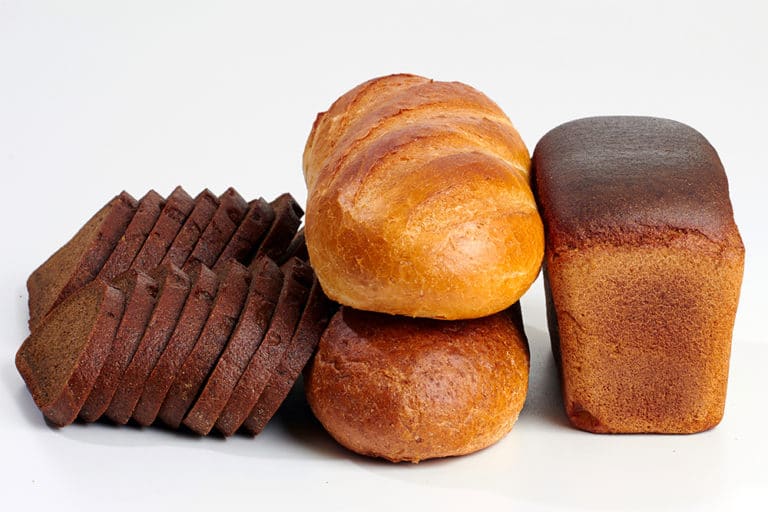
Here is a fun fact: that crushed granola bar that has been sitting at the bottom of your gym bag for months – someone is willing to buy it. The only catch is that you’ll probably end up owning it again, and it will most likely never even leave your house.
Selling chametz, otherwise known as leavened food, is a Pesach (Passover) tradition for many Jewish communities.
Quick recap: Pesach is an eight-day holiday that commemorates the ancient Israelites’ exodus from Egypt and freedom from slavery as recounted in the Torah. The story goes that with Pharaoh’s army attempting to stop their exit, the Israelites had to flee, pulling their bread out of the ovens before it had time to rise. Today, during the holiday, many Jews refrain from eating leavened food, including breads, pastas, and certain liquors, as a way to remember the exodus from Egypt.
Jewish law prohibits a Jewish person from possessing any chametz on Pesach. In earlier times, people would simply eat or destroy their chametz to abide by the rule. However, this approach became problematic for Jews who owned large grain houses or distilleries. Even the biggest, wildest simcha (happy occasion) probably can’t use up 80 tons of whiskey.
The custom of selling chametz to people outside of the Jewish community began as a way for these business owners to obey the law without having to deplete their chametz supply and risk financial loss. The savvy workaround has its roots in the Talmud (an ancient Jewish text of law and rabbinic discussion).
Today, chametz is sold by many Jews, even if they don’t own a factory’s worth of things made from leavened grain. The practice is most common amongst traditionally observant communities, but can be found in different expressions, depending on those involved.
So, what goes down during the sale of these half eaten boxes of cereal and frozen bagels?
For Rabbi Joe Wolfson, rabbi of the Jewish Learning Initiative on Campus at New York University, it starts in a small, book-filled room.
He sells his chametz, along with that of his NYU students’ to a man named Rafael Gonzalez.
It is standard for a rabbi to facilitate the sale of a community’s chametz. It’s similar to the role of an apartment broker, but without the astronomical fee. It is all done through contracts. People in the community authorize, via a form, that Rabbi Wolfson may sell their chametz on their behalf.
Rabbi Wolfson gathers up the forms and takes them to Gonzalez who works as the custodian at the famed Mesivtha Tifereth Jerusalem Yeshiva (house of Jewish study) in New York’s Lower East Side. The yeshiva, which is more than 100 years old, is known as having been headed by Rabbi Moshe Feinstein – a beloved and highly esteemed Torah scholar. Gonzalez bought chametz from Rav Feinstein himself.
“For me and my students, it’s a pretty cool thing to sell our chametz to the man who has been doing it for some pretty important people for decades,” says Rabbi Wolfson.
For the last few years, Rabbi Wolfson has been in the room, which is lined wall to wall with Jewish texts, while the sale takes place. Gonzalez sits across from members of the Bet Din (rabbinic court) as he fields detailed questions about beer and other non-kosher-for-Passover foods.
“They grill Raphi about his knowledge of all of the intricate laws of chametz – what is chametz, what isn’t chametz, and you can see he enjoys it. He smiles and gives all the answers,” says Rabbi Wolfson.
It isn’t far-fetched to assume that Gonzalez, despite not being Jewish, might know his chametz laws better than the average Hebrew school graduate.
Once the questioning is complete, Gonzalez signs an official document which legally places the aforementioned chametz into his possession once Passover begins. While it will technically belong to him, and he will have bought it – he rarely, if ever, sees the chametz. Ownership is returned to the original seller at the end of the holiday.
This is the brilliance of the loophole. The sellers can keep their chametz in their homes without breaking the Pesach prohibition of owning leavened products. So those crumbs under the couch that you just can’t reach are no longer an issue. Spring cleaning who?!
Rabbi Wolfson suggests that not only does chametz selling fulfill the Jewish legal obligation, it also allows for a moment of appreciation for those different from ourselves.
“I think it’s a great opportunity to have a moment of gratitude for our non-Jewish friends who enable the Jewish community to be able to celebrate something as important as Pesach,” says Rabbi Wolfson.
So, if you feel so inclined, go ahead and sell that box of stale crackers that’s been sitting in your pantry for too long. You’ll still have to get rid of it yourself eventually. But hey — if you don’t, you can always sell it again next Pesach.
Originally Published Apr 2, 2021 12:03AM EDT


